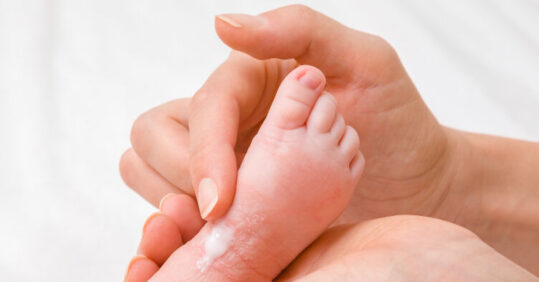The National Institute for Health and Care Excellence (NICE) has recommended that children under 12 should not be prescribed bath emollients for treatment of eczema and other skin conditions, in a draft new guideline published today.
The updated guidance, out for consultation until 4 April, comes after NICE’s independent guideline committee considered new evidence from the randomised controlled BATHE trial, first published in 2018.
The research found that children who used emollient bath additives in addition to other standard treatments for eczema did not benefit more than children who did not use additives, suggesting that prescribers should stop focusing on bath additives in the treatment of eczema.
Related Article: Analysis: The vital role of health visitors in empowering homeless families
As such, the NICE committee considered that prescribing an ineffective product places unnecessary burdens on patients and carers, in terms of acquiring and using the product.
In cases where children benefit from or enjoy using bath additives, NICE’s committee suggests parents buy the products over the counter.

GPs should explain to children and their parents or carers that bath emollients don’t help with eczema but can optionally be purchased over the counter as they don’t make the condition worse.
The guideline committee considered whether a different recommendation should be made for children with sensory processing disorders who are unable to tolerate leave-on emollients that are applied directly to the skin.
Related Article: Nursing in Practice is heading to Birmingham: Put 12 June in your diary!
However it decided not to because ‘there was no evidence to suggest that emollient bath additives are effective for this group’ and because ‘leave-on emollients can be diluted in hot water and added to bath water, so there is already an alternative option available’.
The guideline underscores existing NHS England recommendations for GPs not to prescribe bath emollients on the grounds of cost efficiency, and the fact that they are available over the counter. NICE said its clinical recommendation ‘should further reduce prescribing of emollient bath additives’ which ‘would save money for the NHS and reduce geographical variation’.
Around one in five children suffer from atopic eczema, a chronic inflammatory itchy skin condition that usually develops in early childhood. According to NICE, the condition can have a profound psychological/psychosocial impact on the lives of children and their carers, affecting their quality of life in various ways.
Related Article: No extra testing needed for notifying chickenpox cases, guidance says
Conventional management of atopic eczema involves advice on avoiding things that make the condition worse, the use of emollients to cleanse and moisturise the skin, and the use of topical corticosteroids (corticosteroids applied to the skin) to reduce irritation and inflammation.






